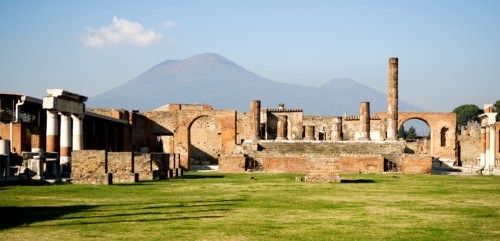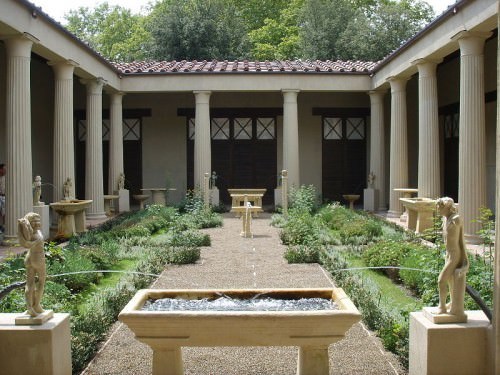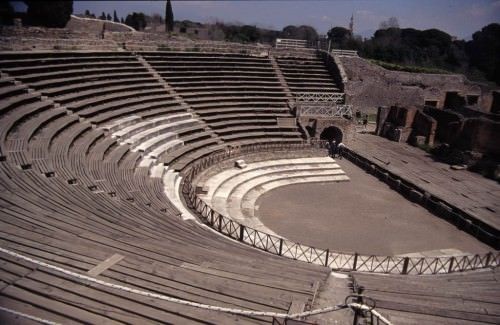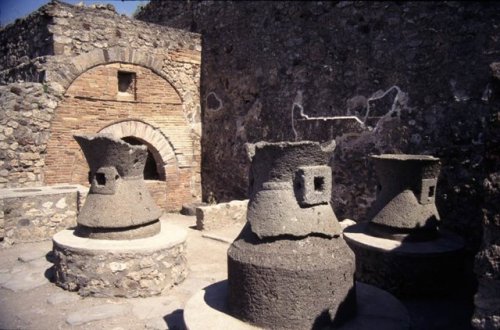




POMPEII:
POMPEII was a large Roman town in the Italian region of Campania which was completely buried in volcanic ash following the eruption of nearby Mt. Vesuvius in 79 CE. The town was excavated in the 19th and 20th century CE and due to its excellent state of preservation it has given an invaluable insight into the Roman world and may lay claim to being the richest archaeological site in the world in terms of the sheer volume of data available to scholars.
The area was originally settled in the Bronze Age on an escarpment on the mouth of the river Sarno. The site of Pompeii and the surrounding area offered the twin advantages of a favourable climate and rich volcanic soil which allowed for the blossoming of agricultural activity, particularly olives and grapes. Little did the original settlers realise that the very escarpment on which they built had been formed by a long-forgotten eruption of the now seemingly innocent mountain that over-shadowed their town. However, in Greek mythology, a hint at the volcano’s power was found in the legend that Hercules had here fought giants in a fiery landscape. Indeed, the nearby town Herculaneum, which would suffer the same fate as Pompeii, was named after this heroic episode. In addition, Servius informs us that the name Pompeii derives from pumpe, which was the commemorative procession in honour of Hercules’ victory over the giants.






Комментариев нет:
Отправить комментарий